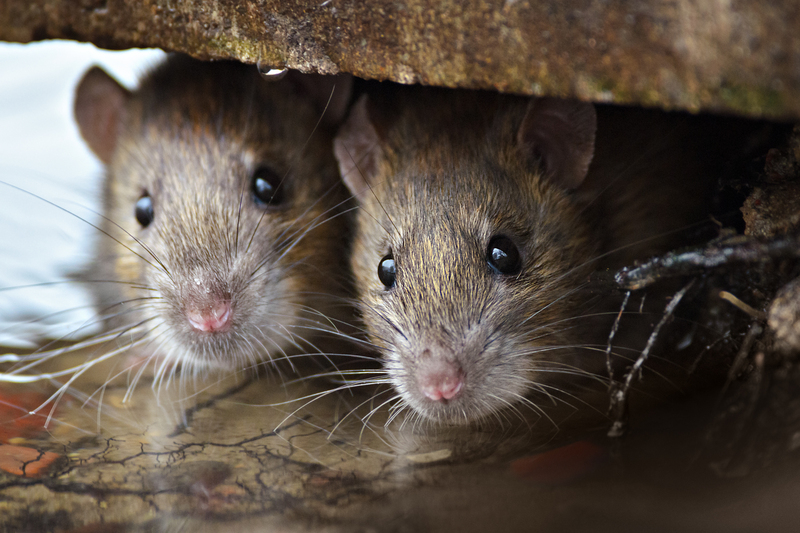Beat the Stubborn Pet Odors for a Cleaner Environment
Posted on 19/06/2025
Beat the Stubborn Pet Odors for a Cleaner Environment
Having pets at home brings unconditional love, warmth, and joy. However, even the most adorable pets can leave behind stubborn odors that seem impossible to remove. These persistent smells can linger, create embarrassment, and affect the environment of your home.
In this comprehensive guide, you will discover practical, effective, and safe solutions to eliminate pet odors, tips for maintaining freshness, and insights into creating a cleaner, healthier living environment. Let's explore how you can beat those stubborn pet odors for good!
Why Do Pet Odors Persist?
Before tackling the problem, understanding the source is essential. Pet odors are not only caused by fur or saliva; they can stem from multiple factors:
- Urine and fecal accidents, especially from kittens, puppies, or stressed pets.
- Natural scent-marking behaviors from dogs and cats.
- Accumulation of dander, skin oils, and saliva on furniture and carpets.
- Improper cleaning habits and the use of the wrong products.
- Poor ventilation in homes leading to stagnation of odors.
Identifying the root cause of persistent pet smells is the first step in any comprehensive odor control strategy.

Health Effects of Pet Odors on Indoor Air Quality
Stubborn pet odors are often more than a mere annoyance. These odors can have tangible impacts on your living environment and health, including:
- Worsened indoor air quality that triggers allergies and asthma.
- Unpleasant living environment and increased risk of respiratory infections.
- Compromised immune response in children, the elderly, and immunocompromised individuals.
- Social embarrassment--guests might avoid visiting because of the smell.
Building a cleaner, odor-free home is not just about comfort--it's about your family's health.
Effective Steps to Eliminate Stubborn Pet Odors
1. Immediate Cleanup Is Key
When an accident happens, act quickly! The longer pet urine or waste sits, the more challenging the smell becomes. How to remove pet odor quickly:
- Gently blot liquids with clean towels to absorb as much as possible--never rub, as this spreads the mess.
- Use an enzymatic cleaner specifically designed for pet messes; these break down the odor-causing compounds at a molecular level.
- For dried stains, rehydrate with a damp cloth, then clean with a specialized solution.
Tip: Always test any cleaning solution on a small, hidden area to avoid damaging carpet or fabric.
2. Regular Grooming and Pet Hygiene
- Brush your pets regularly to remove excess fur and dander before it settles in your home.
- Give your pets baths as recommended for their breed and type (consult with your vet for frequency).
- Keep pet bedding, toys, and collars clean--these items can harbor odors and bacteria.
3. Home Cleaning Routines for Odor Prevention
- Vacuum carpets, rugs, and upholstery at least twice a week using HEPA-filter vacuums, which trap allergens and dander.
- Mop hard floors with pet-friendly cleaning agents that neutralize smells.
- Wash pet bedding, blankets, and plush toys weekly with hot water and a little white vinegar to disinfect and deodorize.
Consistency is key! Building a routine makes pet smells much less noticeable and easier to manage.
4. Target Common Problem Areas
Certain corners of your house--like litter boxes, feeding areas, and favorite nap spots--are hotspots for stubborn odors.
- Litter Boxes: Scoop daily and completely replace litter weekly. Wash the box with soap and water, never with harsh chemicals that might deter your cat.
- Pet Bedding: Use removable, machine-washable covers and wash regularly.
- Upholstery: Sprinkle baking soda, let it sit for 20 minutes, then vacuum thoroughly to absorb deep-seated smells.
- Crate and kennel cleaning: Disinfect these areas at least weekly.
Natural and Eco-Friendly Ways to Eliminate Pet Odors
Many commercial deodorizers simply mask pet smells rather than eliminating them. To achieve a truly cleaner environment, consider these natural odor-fighting solutions:
- Baking Soda: A natural deodorizer, sprinkle on carpets and furniture, let sit, and vacuum off the residue.
- White Vinegar: Mix equal parts vinegar and water in a spray bottle--great for hard surfaces and odor removal.
- Citrus Peels: Place orange or lemon peels around trouble spots (out of pets' reach) to neutralize lingering smells.
- Activated Charcoal: Place charcoal pouches in smelly areas to absorb odors over time.
- Homemade air fresheners: Combine water, a few tablespoons of baking soda, and a few drops of pet-safe essential oil (like lavender) in a spray bottle.
*Note:* Always check that any essential oils or deodorizing agents you use are non-toxic and safe for your specific type of pet.
Dealing with Pet Odors in Specific Places
Carpets and Rugs
Pets love to relax on soft surfaces, which trap odor molecules. To beat stubborn pet odors from carpets:
- Deep clean at least every three months--consider renting a carpet cleaner or hiring professionals.
- For minor spots, treat with enzymatic cleaners and baking soda. Work products into the fibers, allow to dry, and vacuum thoroughly.
- Consider area rugs with easily washable materials for high-traffic or pet-favored zones.
Sofas and Upholstered Furniture
To maintain a fresh-smelling sofa:
- Vacuum regularly, focusing on seams and crevices where hair and dirt accumulate.
- Spot clean with vinegar and water (test on hidden areas first).
- Try fabric-safe pet odor sprays, or sprinkle baking soda as a simple fix.
- Use washable slipcovers--they're convenient and make cleaning a breeze!
Litter Boxes and Cages
Box placement and care matter:
- Place litter boxes in well-ventilated areas and away from direct living spaces.
- Line the bottom with a layer of baking soda before adding litter to absorb bad smells.
- For rodent, rabbit, or bird cages, replace bedding frequently and wash cages with mild soap weekly.
Hard Flooring
- Mop up spills immediately and use higher concentrations of vinegar solution for persistent smells.
- For wood floors, use pet-specific cleaners as vinegar may dull the finish.
- Steam cleaning can powerfully lift particles and kill odor-producing bacteria.
Advanced Solutions for Tough Pet Odors
Some smells are more relentless than others. For cases when home remedies aren't enough:
- Ozone generators and air purifiers: These devices remove airborne odor molecules, dander, and allergens, significantly improving air quality.
- Professional cleaning services: Experts have access to industrial-grade equipment and specialty products.
- Carpet and upholstery shampooing: Deep, professional cleaning can often salvage textiles that seem unsalvageable.
- Painting or sealing floors: In cases of extensive damage (especially in cement or subflooring), sealing can prevent odor from leaching out.
Important: Always ventilate your home well during and after using specialty cleaning products.
Top Pet Odor Prevention Tips for a Cleaner Environment
- Schedule regular vet checkups: Sometimes persistent smells result from health issues--especially urinary tract infections or anal gland problems.
- Train your pets to use the restroom in designated areas only.
- Upgrade pet diets: Healthier diets often lead to less pungent waste.
- Provide plenty of water: Hydration dilutes urine concentration, lowering odor intensity.
- Freshen up bedding and toys regularly, as they can harbor bacteria and foul odors.
- Ensure adequate ventilation throughout your home by opening windows or using fans.
With a proactive and holistic approach, you can prevent pet odors before they become a major issue.
The Role of Pet-Friendly Cleaning Products
Not all cleaning products are safe to use around animals. Many conventional cleaners contain harsh chemicals that can harm pets when inhaled or ingested. Look for:
- Enzyme-based cleaners that naturally digest odor-causing bacteria.
- Plant-based detergents free from ammonia, bleach, and artificial fragrances.
- Products labeled "pet-safe" or "non-toxic."
- Avoid essential oils like tea tree or eucalyptus, which can be dangerous to cats and dogs.
Common Mistakes to Avoid in Pet Odor Control
- Masking odors with air fresheners--instead, focus on neutralizing the source.
- Using ammonia-based cleaners--these can mimic the smell of urine and attract pets back to the same spot.
- Neglecting regular pet grooming, which increases dander and fur buildup.
- Overlooking areas like HVAC vents and filters that circulate smells around the home.

When to Seek Professional Help
If you have tried multiple odor control methods and unpleasant aromas persist, it's time to call an expert. Professional odor-removal specialists can:
- Assess the source of the smell using specialized tools.
- Provide deep-cleaning for carpets, upholstery, or HVAC systems.
- Recommend home modifications or remediation for chronic odor issues.
The investment is worth it for an odor-free, cleaner environment.
Conclusion: Enjoy a Cleaner, Fresher Home With Your Pets!
Living with pets doesn't mean you have to put up with persistent bad smells. By following these practical tips, adopting healthy cleaning habits, and using the right products, you can truly beat stubborn pet odors for a cleaner environment. Create a welcoming home--for both your family and your animals--by prioritizing cleanliness, odor prevention, and a little extra love!
- Remember: Consistency conquers odors!
- Routine cleaning and maintenance keep your living environment fresh and inviting.
- Embrace natural, pet-safe products for the health and safety of all family members.




